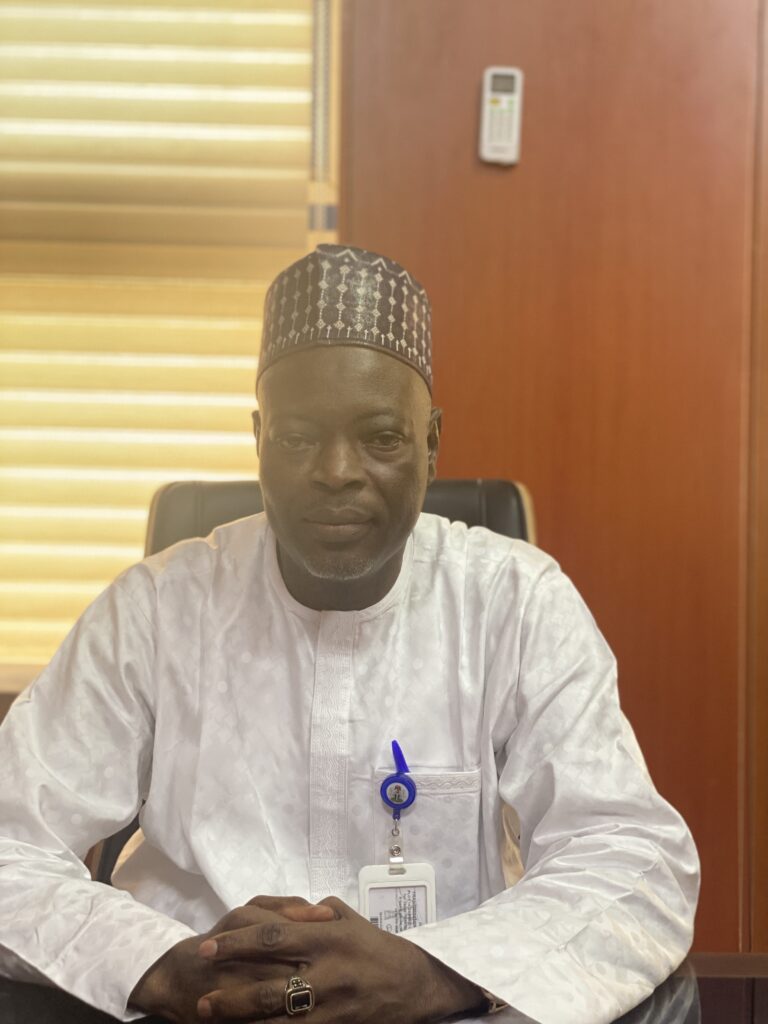In Part 1 of this article we covered the different business models adopted by FinTech companies (our article presented six, perhaps there is more). In that article we also encouraged you to think of the business model Puttru fits into prior to reading this article. Were you right?
A summarized version of Part 1 and an introduction of what will be covered in Part 2 can be read here: END OF PART 1: A summary.
If you haven’t read Part 1 at all, then starting with that article would be a good idea. See PART 1: Is Africa’s energy sector ready to capitalize on the financial technology revolution? Why Puttru, why now?
Puttru: A capital market FinTech Company for Africa by Africans
What are capital markets? The best way to understand capital markets is by knowing what they do, or the purpose they serve. Capital markets are firms active in “the provision of services relating to primary issuance, securities trading, Merger and Acquisition (M & A), facilitation of trade and advisory services”, in a business-to-business (B2B) context[1]. The primary purpose of capital market firms is to provide access to capital, facilitate trade (within and across borders), and manage associated risks.
This, the above definition, is why Puttru is not a crowdfunding platform, as we discussed in the article on ‘Puttru, the capital raising solution for Africa’s Energy market’.
With crowdfunding business models being, arguably, more known than the capital market business model, it is easy to understand why most capital raising platforms could be thought of as crowdfunding platforms.
However, one distinguishing reason why we are not a crowdfunding business is that Puttru serves a unique clientele: energy businesses and investment entities (i.e. “establishments with a business purpose to invest funds uniquely for returns from capital appreciation, investment income or both”[2]). As such, Puttru is a FinTech B2B platform that facilitates access to capital from capital market firms to entrepreneurs running energy businesses or developing energy projects on the African continent.
Puttru, why now? Megatrends and driving forces
We all know Ernest and Young (EY). The firm is a big name in the professional services industry and widely known as one of the Big Four. So, if EY is excited about the future of FinTech companies and capital markets, I would say it is worth knowing why. The EY report on Capital Markets: Innovation and the FinTech landscape identifies three megatrends currently changing countries across the globe, strengthening the role of capital markets and supporting the growth of FinTech companies that simplify the work of traditional capital market firms. These megatrends are: 1) the upsurge in entrepreneurial activities globally, 2) an increasingly global economy, and 3) an increasingly global economy driven by digital technology.
High-impact entrepreneurs are increasingly being seen in emerging markets, not just mature markets anymore.
- The upsurge in entrepreneurial activities globally: entrepreneurs are valuable contributors to the economic activities of a country. They create jobs and income generating opportunities for themselves and those who work for them. They conceive and produce novels ways to addressing every-day problems. All of which contribute to economic growth. The report notes that these high-impact entrepreneurs are increasingly being seen in emerging markets, not just mature markets anymore. Furthermore, these entrepreneurs tends to be young, female and take advantage of technological advancements.
Also, as their businesses continue, so does their demand for capital. Access to capital, however, continues to remain the missing variable.
- An increasingly global economy: the gap existing between mature markets and growth markets is closing up, thanks to the accelerated economic growth rates in these countries. The 2016 report notes that this will continue in the next decade or so. These trends will change the profile of the demographics in these countries. For example the middle class will expand considerably and, with more to spend, a growing appetite for sophisticated financial services. Furthermore, the interlinkages between economies of the world will continue to be strengthened as interdependencies deepens. With these happening in the background, value created from services trade is expected to grow from US$1.6 trillion in 2012 to US$8.7 trillion by 2035.
…the gap existing between mature markets and growth markets is closing up…the middle class will expand considerably and, with more to spend, a growing appetite for sophisticated financial services.
- An increasingly global economy driven by digital technology: in the forward of the report, Mr Wintermeyer remarked that “the era of digital has arrived (in capital markets)”. With the arrival of the digital era came technological disruptions, not restricted by industries or geographies. Although some industries may be witnessing a lower degree of this disruptions, the financial services industry, as early adopters of digital technology, has been immensely transformed by it, although not fast enough to maintain the required pace. Millennials, occupying a significant share of customers and workforce, will serve as the impetus for the financial services industry to adopt sophisticated ways of meeting these expectations. By 2020, 50% of the workforce will be Generation Y and Z – otherwise known as digital natives, says the report.
Each of these megatrends are true for Africa and will drive growth across sectors, including technological growth, says a 2018 Mckinsey & Company article on ‘Rethinking the African business opportunity’[3]. According to a survey reported in that article, most respondents believe that in the next 20 years the continent’s GDP will be among the fastest growing in the world.
If you are a sceptic you are probably wondering: why so far out in the future?
So let’s focus on what is happening in Africa today.
At 313 million, the African middle class is roughly the same size as its Indian and Chinese counterparts, says a Deloitte report.
A book on ‘Africa’s overlooked business revolution’ by the same firm, i.e. Mckinsey & Company[4], shows a vast gap between people’s perception concerning the performance of businesses in Africa and just how well these businesses are doing.
If you felt the issue is that of overstatement, you are far from right.
When asked to guess how many companies make an annual revenue of $1billion or more in Africa, most of the 1000+ business executives interviewed from Africa and across the world settled at 50 as the maximum number of companies.
The actual number, according to Mckinsey’s database, is 400. And these companies are on average growing faster and are more profitable than their peers globally[5].
It is easy to understand why some investors might be hesitant about the continent, or business executives having a lower perception of the wealth making potential of the continent, considering that this is not the sort of news on Africa that regularly make it to the headlines.
Still, one thing to take away from the studies from these firms (EY and Mckinsey) is that Africa is worth paying attention to, either as one wishing to drive the transformation and/or take advantage of the transformation.
At Puttru, as a FinTech company and as one in Africa, we see ourselves driving and taking advantage of these economic and technological transformations.
Companies that get in early and shape the right strategy can sustain double-digit profit growth over decades – Tidjane Thiam, CEO of Credit Suisse, on investing in Africa [6]
When asked to guess how many companies make an annual revenue of $1billion or more in Africa, most of the 1000+ business executives interviewed from Africa and across the world settled at 50 as the maximum number of companies. The actual number, according to Mckinsey’s database, is 400.
To win in Africa, companies need to see unmet demand or unsolved problems as opportunities
The above statement is not ours. However that is a recommendation from the above cited book: Africa’s overlooked business revolution.
The statement only reinforces Puttru’s mission: To disrupt the traditional capital raising process in African energy markets by leveraging advances in technology to enable energy businesses and investors, within and outside Africa, to connect, interact and close investment deals. By addressing barriers to, and facilitating flow of, private sector investment into the African energy sector we empower African companies to address the energy challenges in the region.
The continent’s energy challenges continue to remain a pressing issue and a key barrier to sustainable economic growth and development. About 600 million people, out of its 1.2 billion population, lack access to electricity. A situation that affects households and businesses, and affects the performance and competitiveness of the latter.
Africans are paying about three to six times what grid consumers across the world pay for electricity.
Faced with these issues, many households and businesses have switched to owning personal power generators and supplying their own electricity needs. This has meant that to consume electricity in Africa, Africans are paying about three to six times what grid consumers across the world pay for electricity.
It is not all grim, though. This report on ‘Brighter Africa: The growth potential of the sub-Saharan electricity sector’ suggests that “The high penetration of generators, however, demonstrates that African businesses and consumers are willing to pay for electricity. This creates opportunities across the entire power-sector value chain in Africa, especially as growth rates in other regions stagnate”[7].
Is Africa ready for Puttru?
Africa is definitely prepared for the FinTech revolution. The companies generating an annual revenue of $1 billion are doing so because they are able to leverage advancements in technology to outperform their peers, among others, according to study discussed above. Moreover the global megatrends are true for the continent and are playing out here.
But how does this compare to the continent’s readiness for a capital market, energy specific FinTech solution?
Here are a few reasons why we strongly believe that our target market is ready for us:
- Access to capital is a major problem energy entrepreneurs in Africa face and this problem is restricting their growth and ability to serve more customers. For small and medium sized enterprises (SMEs), in addition to lack of access to capital markets, access to technical expertise and technology and equipment is also lacking.
- There is a large number of customers waiting for these energy companies. As already discussed, about half of the African population do not have access to electricity and are paying more than those in developed countries to enjoy some amount of electricity. Households and businesses are not depending on a grid system that isn’t meeting their needs. They are seeking alternative solutions provided by non-traditional energy companies
By 2025, the internet’s contribution to GDP in Africa will grow at the same rate as Sweden, Taiwan and the United Kingdom[11]. There will soon be more people using smartphone in Africa than in North America[12].
- Africa has a growing population of customers who are not just willing but able to pay for improved energy access and better energy services. Africa now has the fastest growing middle class in the world. At 313 million, the African middle class is roughly the same size as its Indian and Chinese counterparts[8]. Moreover “Africa is home to a consumer class whose spending outstrips India’s”[9].
- Being a technology business one might wonder if Africa has the requisite digital infrastructure for such a business to strive. The answer to that is ‘Yes’. “Africa has one of the most digitally connected populations on the planet, with 400 million internet users”[10], according to this Mckinsey report on ‘How e-commerce supports African business growth’. According to the African Development Bank (AfDB), by 2025, the internet’s contribution to GDP in Africa will grow at the same rate as Sweden, Taiwan and the United Kingdom[11]. There will soon be more people using smartphone in Africa than in North America[12].
- On the investment front, the situation across the globe could work for Africa and its energy companies. Global market conditions are favourable, generally, with reduced financing costs showing a fall in risk premia associated with emerging markets, says the 2018 UN report on ‘World Economic Situation and Prospects’[13]. The report notes that the global macroeconomic outlook is one that facilitates rising capital flow and cross-border lending to emerging markets.
- The capital markets in Africa are also doing better. According to the 2017 PwC report on ‘Africa capital markets[14]’ the recoveries in 2017 is expected to strengthen and continue to support an increased level of cross-border equity capital market activities. Furthermore as African governments continue to take measures to deepen their capital markets the interest from global investors should continue to grow as well as the capacity of financial services firms to raise funding to close the gap in access to capital, says the report.
What is missing is a FinTech platform that provides the full spectrum of what Puttru stands for.
Some final words
We have covered quite a lot in this two-part article and I hope you have found it informative as well as interesting. Also, if you once doubted the wealth making potential of the continent, hopefully, you should now have second thoughts about that. In addition, the information we have provided on technological disruptions (factors driving them) should mean that your position on Africa’s readiness to absorb changes that the FinTech revolution may bring is positive (if it wasn’t before).
Specifically on Puttru, we have shown how this business responds to transformations happening across the globe and, yet, how its design responds to the African market (its needs and unique characteristics). More on that will come, however it should be clear by now that the continent has the appropriate settings for a FinTech business like Puttru to meet a persistent development need and to succeed in its mission, which is ‘To disrupt the traditional capital raising process in African energy markets, addressing barriers to and facilitating flow of private sector investment into the sector, with the aim to empower African companies to address the energy challenges in the region’.
[1] EY (2016), see note 1.
[2] International Financial Reporting Standards (IFRS) definition.
[3] Mckinsey & Company (2018): Rethinking the African business opportunity. Available here.
[4] Mckinsey & Company (2018): Africa’s overlooked business revolution. Available here.
[5] Ibid.
[6] Ibid (note 4).
[7] McKinsey & Company (2015): Brighter Africa: The growth potential of the sub-Saharan electricity sector. Available here.
[8] Deloitte: The Rise and rise of the African Middle Class. Available at: https://www2.deloitte.com/content/dam/Deloitte/au/Documents/international-specialist/deloitte-au-aas-rise-african-middle-class-12.pdf
[9] Mckinsey & Company (2018), See note 4.
[10] McKinsey & Company (2019): How e-commerce supports African business growth. Available here.
[11] AfDB on Information and Communication Technology in Africa. See web page here.
[12] Mckinsey & Company (2018), See note 4.
[13] UN (2018): World Economic Situation and Prospects 2018. Available here.







